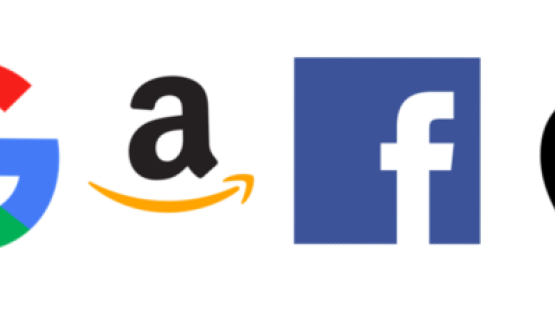Tech companies are trying to redefine privacy - what's missing is real competition on privacy

CEOs of the big tech companies have all recently discovered the value of privacy. On Tuesday, 30 April 2019, Mark Zuckerberg, announced his future plans to make Facebook a "privacy-focused social platform". This was followed by Google's Sundar Pichai demand that “privacy must be equally available to everyone in the world.” Meanwhile, Twitter's Jack Dorsey, has described the General Data Protection Regulation (GDPR) as "net-positive", while Apple had already positioned itself as the champion of privacy.
These announcements are surprising, given that big tech companies have heavily lobbied to weaken data protection regulations, such as the General Data Protection Regulation (and continue to do so). These very same companies are now proclaiming that their primary concern is to protect our privacy. What they are really protecting though is a notion of privacy that is remarkably compatible with their own business models. To put it bluntly: since privacy and data protection gained prominence, it seems as if big tech is reinventing privacy.
Here’s what’s striking: despite recent scandals and investigations, the latest financial reports of all major tech companies remain rosy. These are illustrative of their continued dominance, and, as we argue, a world in which consumers have little choice when it comes to the digital market.
Q1 2019 Financial reports
Google’s parent company, Alphabet, announced $36.3 billion in total revenue for the first quarter of 2019. The company's net earnings for the quarter were $6.7 billion, much lower compared to $9.4 billion just a year ago. This was largely due to a $1.7 billion fine for violating antitrust rules in the European advertising market. Investors reacted strongly to the results, but the company’s overall revenue is still grew by 17% in the past year. Google's ad sales – which count for more than 84% of the company's total revenue – also grew about 15%.
These staggering results must be understood in light of the company’s dominance of the advertising industry, its influence on the Android operating system (which runs on 80% of smart mobile devices globally), and its dominance the global market of general internet search services.
Here’s just one example of how this plays out in practice: when Google recently updated its Terms of Service and Privacy Policy, the company made sure that users have no control over the collected data. If you think Google is big, wait for what’s coming next. Similar to the other tech giants, Google has been heavily investing in areas such as hardware and cloud computing.
Facebook's Q1 2019 financial results show just how much the social network’s financial prospects have remained untouched by its privacy scandals. As TechCrunch concluded: “The fact that Facebook isn’t losing massive numbers of users after years of sustained scandals is a testament to how deeply it’s woven itself into people’s lives.” Facebook still earned $2.429 billion in profit, despite setting aside $3 billion for what is expected to be a record-breaking, multi-billion dollar settlement with the FTC over the Cambridge Analytica scandal.
Zuckerberg’s plans for a "privacy-focused vision for the future of social networking” have raised concerns about further dominance. We have already expressed our doubts regarding Mark Zuckerberg's newly founded compassion for our privacy. As other commentators have noted, unifying its messaging apps and promoting ephemerality in content sharing and communication could help deter calls for regulation, making Facebook harder to break up, and helping it stay ahead of competitors like Snapchat.
Amazon
Amazon revealed a record-high profit in the first quarter of 2019, more than double of what investors predicted. The increase in profits continued, despite (or due to) a history of risky investments, which if successful will reinforce Amazon's dominance in the markets. For example, in 2016, Amazon spent $7 billion on shipping fees, accrued a net shipping loss of $5 billion, and yet posted an overall profit of $2.4 billion. Although, this may sound absurd, this was part of Amazon's strategic plan to reduce the power of its competitors.
Amazon has not joined the privacy bandwagon yet – but there’s no shortage of privacy scandals. Most recently, Bloomberg reported that Amazon workers have been listening to what you tell Alexa, Amazon's voice-activated assistant. Amazon had failed to previously disclose that it employs thousands of people around the world to help improve Alexa's understanding of human speech and its responses to commands. In response, we wrote a letter to Jeff Bezos to address some of our concerns.
What is clear is that Amazon’s market dominance is coming under increased scrutiny. The company is currently under investigation in Germany, Austria and Italy, as well as Europe-wide for the way it uses sales data from its "Marketplace" platform to compete with independent retailers who sell through it.
Apple
Despite the fact that Apple's revenue from iPhone declined 15% from the previous year, the total revenue from all other products and services grew 19% in the first quarter of 2019. Apple announced an all-time high earning per share of $4.18, up 7.5%. The moment Apple saw its most valuable asset's - the iPhone - sales falling, the company decided to focus on capitalising on other investments and products.
In many ways, Apple has legitimate reasons to promote itself as a more privacy friendly company. Its primary source of revenue still comes from the products it sells to us – mainly hardware, laptops, phones etc. – which is a very different business model than that of Facebook or Google. However, this is not the entire story. First, iPhones generate and gather a lot of data, from our location data to our requests made to Siri (Apple’s virtual assistant). In fact, Apple’s growing investment in the healthcare space relies to a large extent on the data it collects from our devices. Apple's CEO, Tim Cook, reportedly highlighted that Apple is in a unique position to capitalize on its technology and encourages users to monitor their health. Second, whilst Apple limits the data is directly shares with outside companies, they still for example, use information about a user’s account, browsing, purchases and downloads in Store to target advertising in the App Store and Apple News. Also, until recently, it allowed iPhone app developers to access users' phone contacts in order to use them for marketing purposes or sell them to third parties.
The need for competition
These financial results paint a very clear picture: the digital economy is composed by a small number of big technology companies that have claimed dominant positions. As a result, they are now able to impose terms and conditions onto their users, and they often do so in ways that exploit their data and infringe their privacy.
This is why, now more than ever, effective competition in the marketplace is necessary for safeguarding privacy and promoting innovation. Whilst recent developments in privacy and data protection regulation such as the EU's GDPR have paved the path for new hope and inspiration for better control over personal data, we still have a long way to go.
Even though the competition models are different in the US compared to the EU, there are battles waging on both sides of the Atlantic about tightening the rules. The American model tends to assess whether a company’s position is pushing up prices for consumers whereas the EU model focuses on investigating companies that are deemed to have a dominant position in the market.
Significantly, both the US FTC and the EU antitrust authorities are grappling with ways to address the market powers of big tech companies, power which is fuelled by the harvesting of people's data. The FTC held a series of hearings on competition and consumer protection in the digital age. The EU is a few steps ahead and in April 2019 the European Commissioner on competition published a report on competition in the digital age following extensive consultation with stakeholders, including Privacy International. The final report outlines the need to adapt competition law and its application to capture "for new ways for those platforms to achieve old goals – like extending their dominance to new markets".
When assessing market power, some competition authorities are starting to recognise the need to consider privacy and data protection implications. For example, the German competition authority has noted that “where access to personal data of users is essential for the market position of a company [here, Facebook], the question of how that company handles the personal data of its users is no longer only relevant for data protection authorities. It becomes a relevant question for the competition authorities, too.” However, this is not enough. Competition around the world need to take further steps to ensure that these companies do not reinvent privacy and data protection to suit their own interests.
Words are not enough. Privacy was never dead, but to achieve a world in which privacy is protected into the future, regulators and law-makers need to hold powerful companies to account today. And together with the media and civil society organisations, we must expose their duplicity. Civil society need to remain vigilant and active. In the US there are already signs that big tech companies are fighting the adoption of strong data protection laws. In the EU an important piece of legislation, the e-privacy regulation, is stuck because of strong opposition of tech companies.
What Is the Solution?
- When assessing a company’s powers, we need to take personal data into account, focusing not only on price, but on quality of service, innovation, and privacy.
- There should be heightened control over mergers and acquisitions initiated by big companies, including by assessing its impacts on data.
- Regulators need to work towards creating conditions for genuine competition on key features such as privacy, which would allow companies to compete to provide the most privacy friendly services.
- Regulators should address the harm that derives from lack of competition, including by adopting analyses of market powers that take into account societal concerns, privacy harms, as well as economic aspects, including the opportunity costs.
- There should be coordinated national and international enforcement across antitrust authorities and other regulatory bodies, such as data protection or consumer protection authorities, to avoid loopholes, and a ‘race to the bottom’.
- Ultimately, human rights and consumer organisations should be empowered, including through collective proceedings, to question market dominance which negatively affects individuals’ rights and obtain effective redress.



